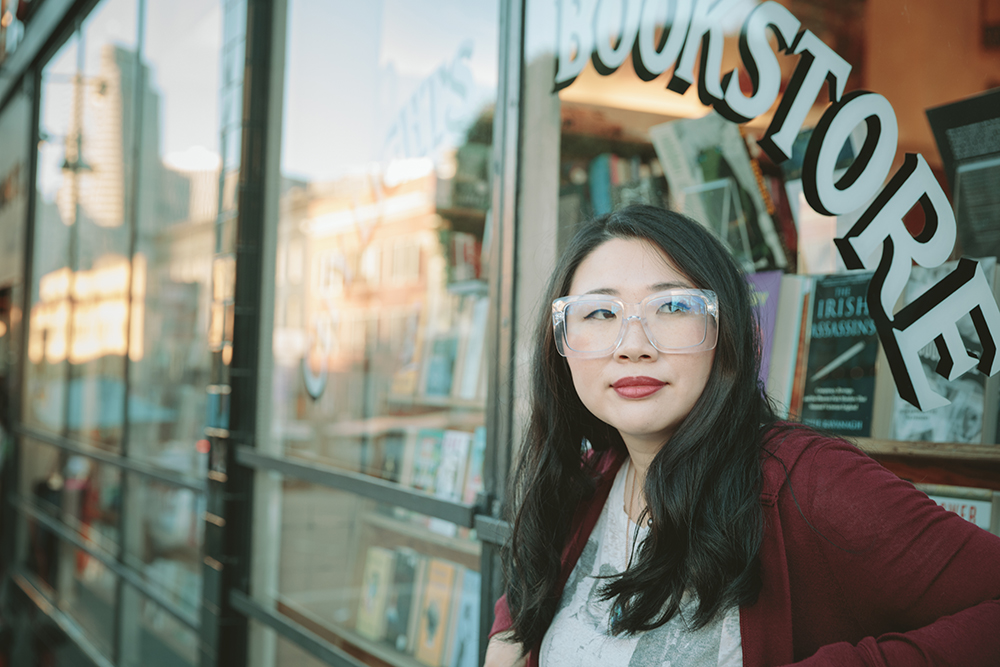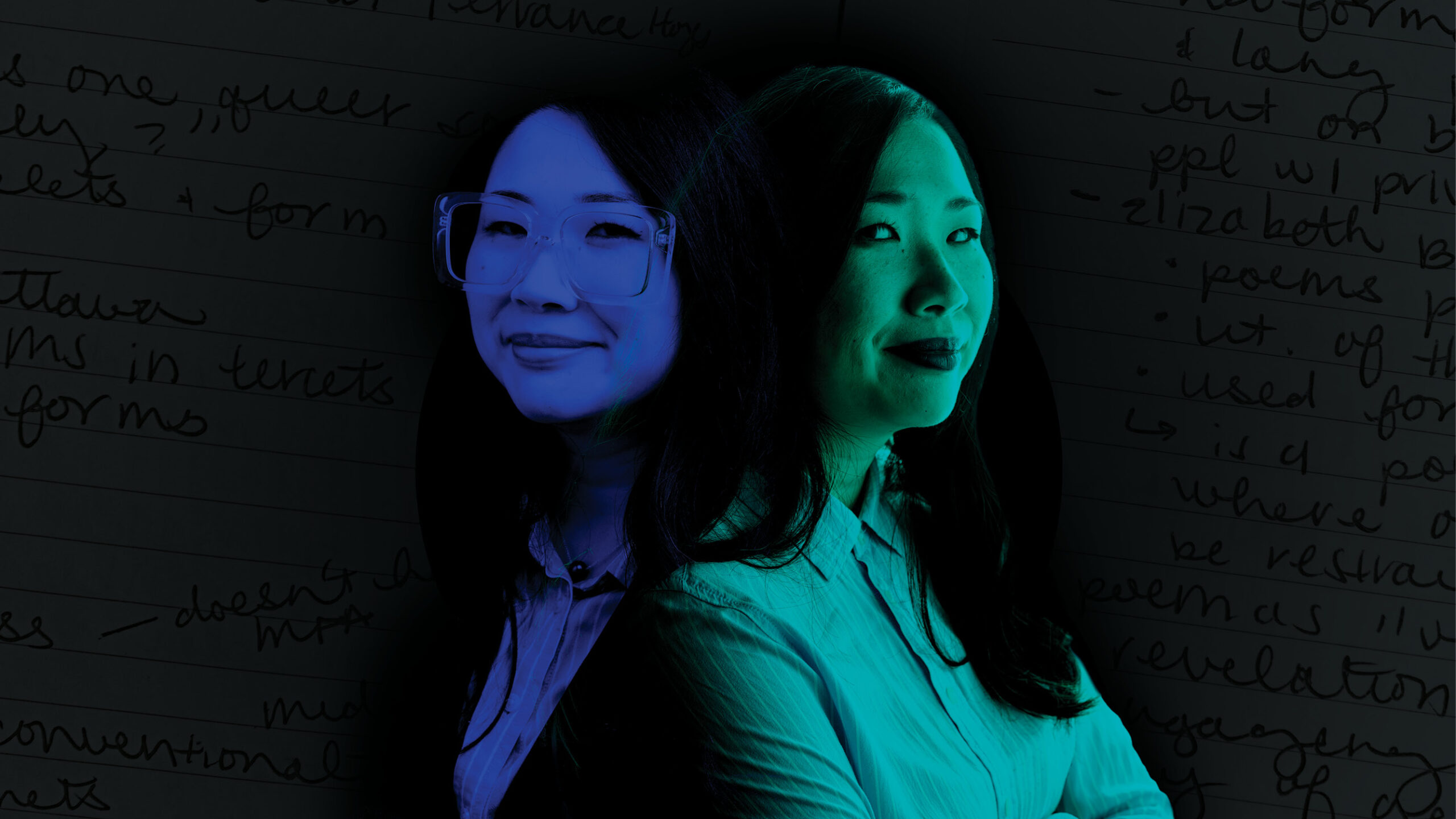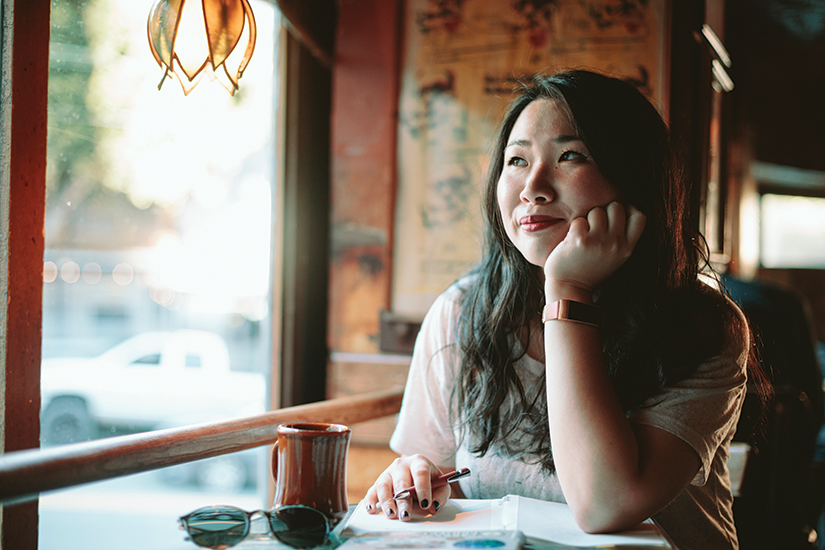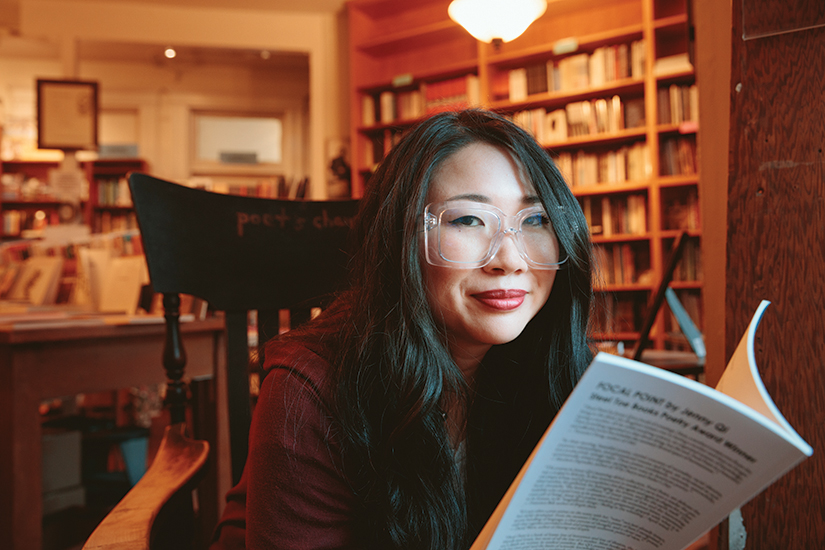She skipped two grades and came to Nashville alone at 16 to attend Vanderbilt, something she describes as “a pretty big culture shock.” But she also found, for the first time, a community of other Asian American students. “That’s something I was sort of excited about, being able to meet people with a similar background. I still value those friendships.”
She was focused on a pre-med track academically but continued to pursue her writing. “I took a lot of creative classes but went into STEM because it was more practical,” she says. “I thought writing was something I could never do as the child of immigrants who had really struggled in the U.S.” She served as poetry editor for The Vanderbilt Review and in her sophomore year studied traditional verse and form in a workshop with acclaimed poet Mark Jarman, who recalls her as “one of the outstanding students in a class of outstanding students.” The group included, in Jarman’s words, “some very strong seniors,” as well as Nate Marshall, who is now an important figure in the poetry world. Nevertheless, he says, “despite her youth, she held her own in that class.” Jarman is thanked in the book’s acknowledgements for his kindness and for shaping Qi’s early understanding of the craft.
Qi ultimately veered away from her medical school ambitions in favor of research. She says she was never terribly enthusiastic about becoming a physician, and taking a job in a lab gave her a taste for the culture of research. “I liked working in the lab. People were curious about things, and it was a more laid-back environment.”
Looming over all her undergraduate experiences, however, was her mother’s lengthy illness and eventual death, which came during Qi’s senior year. “It was such emotional whiplash when my mom was ill,” she says. “My parents kept a lot of things from me. They didn’t want my academic performance to suffer. But when I came home, suddenly I was expected to be in a caretaker role.”
This, too, had an impact on Qi’s decision to forgo a medical career. Though both her parents spoke English, they had difficulty navigating the demands of the U.S. health care system. “You really have to advocate for yourself here,” Qi says, “and they weren’t used to that.” The task fell to Qi, who confronted terribly difficult decisions, especially during her mother’s final days, with no real support from the doctors. “I felt like I had a very bad, traumatizing experience,” she says of that period. “Some people might look at that and think, ‘I’m going to be the one to change things,’ but I was just so turned off by what I had seen.”
Qi carried that experience with her as she pursued her doctorate in San Francisco. “In grad school, I became obsessed with this idea that we need to change attitudes around death,” she says, noting that the taboo against accepting death in a frank and humane way is shared by American and Chinese cultures.
Initially she found it too painful to write about her experience but says, “After about a year, it started to pour out.” She began to attend a weekly poetry workshop run by a UCSF professor and physician, David Watts, who urged her to turn the resulting flood of poems into a book. She became interested in science journalism—because it seemed “more practical than poetry”—and served as editor-in-chief of UCSF’s student newspaper. She also began writing personal essays, including two exquisite pieces on her mother’s death published in The Atlantic and The New York Times.



